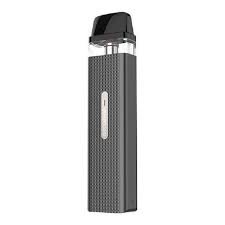Do Vapes Set Off Smoke Alarms? The Truth Explained
Vaping has become increasingly popular over the years, and with its rise, many people have started wondering whether their vaping habits could cause unwanted disruptions in places equipped with smoke alarms, such as homes, offices, or even public spaces. One common question that often arises is: “Do vapes set off smoke alarms?”
Thank you for reading this post, don't forget to subscribe!In this blog, we’ll explore this question, understand how smoke alarms work, and discuss whether vaping could potentially trigger these alarms.
What Are Smoke Alarms and How Do They Work?
Smoke alarms are critical safety devices that detect smoke in the air, helping to prevent the risk of fires by alerting people in the vicinity. There are two main types of smoke alarms:
- Ionization Smoke Alarms: These are designed to detect small particles of smoke, especially from fast-flaming fires. They use a small amount of radioactive material to create an ionized electrical charge in the air. When smoke particles enter the chamber, they disrupt this ionization process, triggering the alarm.
- Photoelectric Smoke Alarms: These alarms are more sensitive to larger particles that are associated with smoldering fires. They use a light sensor that detects the scattering of light when smoke particles enter the chamber. Once the light scattering reaches a certain threshold, the alarm goes off.
What Is the Difference Between Smoke and Vapor?
Before we dive into whether vapes set off smoke alarms, it’s essential to understand the difference between smoke and vapor:
- Smoke is produced by the combustion of materials (like tobacco or wood) and contains harmful particles and gases that can trigger smoke detectors. It’s usually thick and can linger in the air.
- Vapor, on the other hand, is created when a vape device heats e-liquid, turning it into a fine mist. The mist consists of water vapor, propylene glycol, vegetable glycerin, and flavoring compounds, none of which contain the same harmful particles found in smoke.
Do Vapes Set Off Smoke Alarms?
The short answer is no, vaping typically does not trigger smoke alarms. Here’s why:
- Vapor vs. Smoke: As mentioned, the vapor produced by e-cigarettes or vapes is very different from smoke. Vapor consists of small liquid droplets, which lack the solid particulates found in smoke. Most smoke alarms, whether ionization or photoelectric, are designed to detect these solid particles, not the liquid-based mist produced by vapes.
- Amount of Vapor: While the vapor produced by vapes can be visible and thick, it is generally not heavy or dense enough to trigger a smoke alarm under normal circumstances. Unless you’re in a very small, poorly ventilated space where the vapor builds up rapidly, it’s unlikely to set off an alarm.
- Sensitivity of Smoke Alarms: The sensitivity of smoke detectors varies depending on their type and design. Some smoke alarms, especially photoelectric ones, can be more sensitive to moisture or fog-like particles in the air. In rare cases, the accumulation of vapor could confuse a smoke alarm, especially if you’re vaping in a confined space with poor air circulation.
When Could Vapes Trigger Smoke Alarms?
Although it’s unlikely, there are certain situations where vaping could potentially set off a smoke alarm:
- Excessive Vapor in Small Spaces: If you’re in a small, enclosed room (like a bathroom or a small office), and you’re exhaling a lot of vapor, it might accumulate enough to potentially cause a false alarm, especially if the smoke detector is located directly overhead.
- Poor Ventilation: In rooms with little airflow, vapor can linger longer in the air, potentially triggering the smoke alarm if the concentration becomes too high.
- Proximity to the Alarm: If you’re vaping too close to the smoke alarm, the high concentration of vapor in that immediate area may confuse the sensor, causing it to go off.
Tips for Avoiding False Alarms While Vaping
If you want to avoid the possibility of setting off a smoke alarm while vaping, here are a few helpful tips:
- Vape in Well-Ventilated Areas: Always vape in places with good airflow, such as near open windows or in larger, well-ventilated rooms. This helps dissipate the vapor quickly, reducing the risk of triggering a smoke alarm.
- Keep a Safe Distance: Avoid vaping directly under a smoke detector or in small, enclosed spaces. The closer you are to the alarm, the higher the chances of vapor setting it off.
- Opt for Lower-Vapor Devices: Some vaping devices produce more vapor than others. If you’re concerned about triggering an alarm, choose a device that produces smaller, less visible clouds of vapor.
- Avoid Heavy Inhaling in Sensitive Areas: In public spaces, offices, or near areas with sensitive smoke detectors, limit your vaping to more discreet puffs and avoid creating dense clouds of vapor.
Conclusion:
In most cases, vapes do not set off smoke alarms due to the difference between smoke and vapor. Vapor, made up of fine liquid droplets, is typically not detected by the sensors in smoke alarms. However, in rare circumstances, such as in small, poorly ventilated spaces, vaping could potentially trigger a false alarm.
If you’re concerned about setting off a smoke detector while vaping, following simple guidelines like vaping in well-ventilated areas and avoiding large vapor clouds can help prevent any unnecessary disruptions.
Remember, always prioritize safety and consider the environment around you when choosing to vape, especially in areas with smoke alarms.






